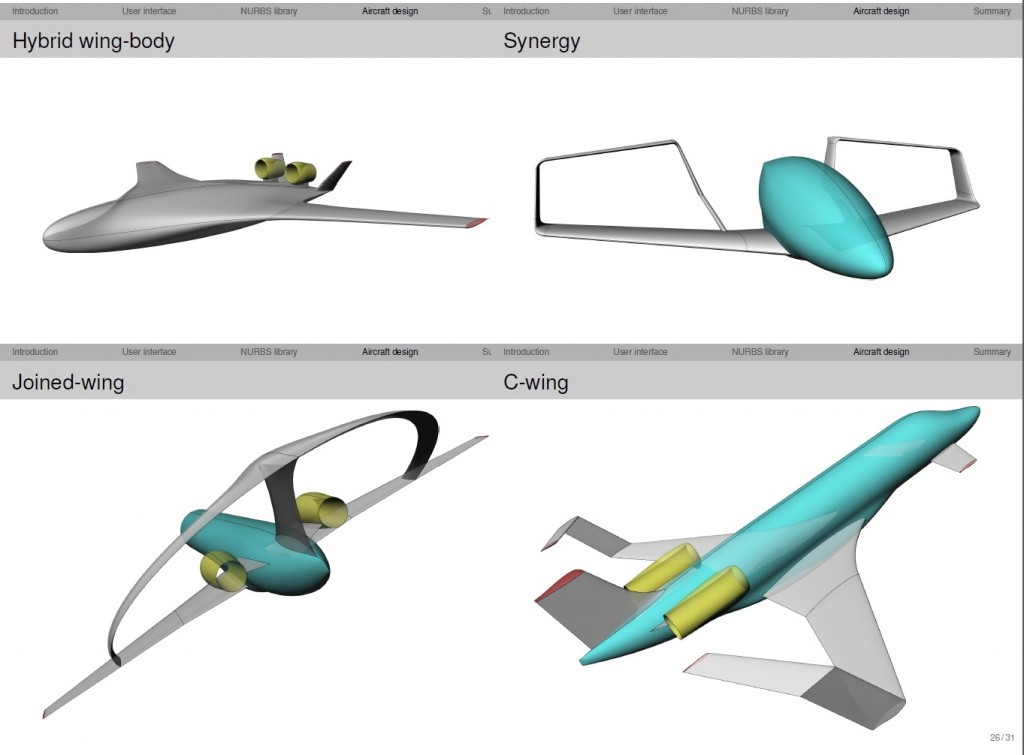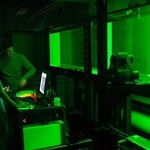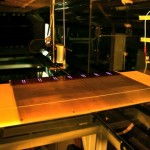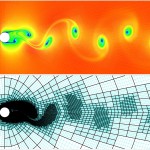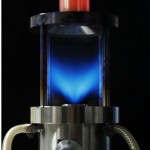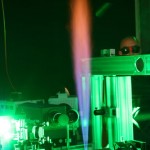![]()
![]() While the Sustainable Aviation programs have a focus on the instillation of professional skills, the foundation of graduate training remains high-quality research on technically challenging projects.
While the Sustainable Aviation programs have a focus on the instillation of professional skills, the foundation of graduate training remains high-quality research on technically challenging projects.
The following is an exemplary selection of projects to be pursued during the Sustainable Aviation Program, divided into four research themes.
I Aerodynamics and Aeroacoustics
II Lightweight Structures
III Biofuels, Combustion and Atmospheric Impacts
IV Life Cycle Assessment and Multidisciplinary Optimisation
I Aerodynamics and Aeroacoustics
Projects in this area concentrate primarily on drag and noise reduction, with the former leading directly to reduced fuel burn and emissions. Drag reduction is sought through the development of unconventional aircraft configurations through the application of numerical aerostructural optimization. In addition, experimental and numerical studies are underway investigating active and passive flow control techniques, including active methods for delaying transition from laminar to turbulent flow. Other numerical and experimental projects are directed at reducing airframe noise from high-lift systems and landing gear. The students involved with the computational projects will gain world-class skills in computational fluid dynamics (CFD) and massively parallel computing, which are in high demand in the aeronautics industry. Trainees in the experimental projects will learn to use sophisticated laser and thermal diagnostic methods in unique wind tunnel and water channel facilities.![]()
![]()
II Lightweight Structures
Projects in this area involve the development of new types of composite sandwich panels with truss-like cores promise to replace metallic panels. Students will use analytical modeling, finite element simulations and experimentation to develop models of truss-core composite sandwich panel behaviour, failure mechanisms and post-damage residual properties. Another project will use topology optimisation and surrogate modeling to optimise the layout of composite fibres in three-dimensional structures that can be manufactured using existing textile fabrication techniques. Trainees will learn to use a large suite of mechanical testing equipment, including load frames, non-contact measurement systems and digital image correlation, as well as custom and commercial finite element packages, such as ABAQUS, and other software.
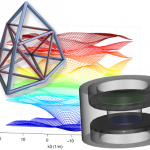
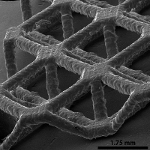
III Biofuels, Combustion and Atmospheric Impacts:
An example of a biofuel synthesis project to be addressed in the CREATE program involves using acyl transferase (MsAcT) from Mycobacterium smegmatis to catalyse transesterification of long-chain fatty acids with methanol or ethanol in aqueous conditions. CREATE trainees in this project will learn to use robotic liquid handlers for automated preparation of enzyme reactions, molecular tools and microbial strains for protein expression in bacteria and yeast, liquid chromatography units for protein purification, and LC-MS systems for separation and identification of reaction products. A further CREATE project will conduct a coherent, systematic, combined experimental and numerical study focusing on the high-pressure combustion characteristics of a wide range of gaseous and liquid biofuels, and assess the thermal oxidative stability of various liquid aviation biofuels. The experimental program will examine the ignition and extinction properties of biofuels at elevated pressures, the sooting tendencies of biofuels at elevated pressures, and the influence of thermal stressing of biofuels on ignition and soot formation. Trainees will gain experience using state-of-the-art combustion apparatus including laser-induced incandescence, laser Rayleigh scattering, soot spectral emission and a jet fuel oxidative thermal stability rig.
IV Life Cycle Assessment and Multidisciplinary Optimisation
One project will investigate, from techno-economic and environmental perspectives, the potential for the aviation industry to move to lower carbon aviation fuels. The project will develop a life cycle-based framework for examining the environmental and economic aspects associated with aviation fuels, apply the framework to examine the life-cycle environmental and economic performance of current (reference) fuels as well as alternative fuels in use or being proposed, and determine the conditions required for low carbon fuels to enter the market successfully. A further project will focus on the construction of real-time emulators for approximating the aerodynamic and structural response as a function of the design variables. The goal is to develop optimisation schemes by which aircraft designs with minimum total environmental impact can be selected.
